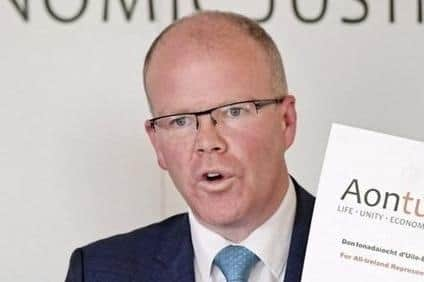Republic of Ireland abortion review: removal of compulsory three day reflection period would be 'a betrayal' of referendum voters, claims pro life campaigner
and live on Freeview channel 276
In 2018 the Republic of Ireland voted to overturn the country's ban on abortion by 66.4% to 33.6% in a referendum.
However, today in Dublin, the Irish Parliament's Health Committee heard that there is no medical or legal reason for the mandatory three-day wait for an abortion, which was a part of the package approved by voters in 2018.
Advertisement
Hide AdAdvertisement
Hide AdBarrister Dr Marie O'Shea, author of an independent review report on the legislation commissioned by the government, told the committee she had confirmed with the Chief Medical Officer that there was no legal or medical reason for the mandatory reflection period. The measure is causing anxiety and distress to women, she said.


Her report has recommended that the compulsory three-day wait is made optional.Dr O'Shea said she understood that the three-day wait was included so that women would not make a mistake that they would later regret.
Dr Catherine Conlon, an associate professor at Trinity College Dublin who researched key parts of the review, said there were no medical or legal underpinnings for the wait time, but she too said it is causing anxiety and distress.Aontú leader Peadar Tóibín said several thousand women had changed their minds so far during the three day period, and he asked whether the researchers had spoken to any of them.Dr Conlon said they had not because none of those women were among those who had come forward via the unplanned pregnancy or abortion care supports.However speaking afterwards, Eilis Mulroy of the southern campaign group Pro Life Campaign, objected to attempts to scrap the three day rule.
"We believe a lot of the 'soft yes' voters would have taken comfort from the three day period, and it was sold at the time as a safeguard,” she said. “Even one of our senior ministers, Minister Simon Coveney, went public on the fact that he felt comfortable voting for a change in the law because of this safeguard - and that would have certainly swayed soft voters."
Advertisement
Hide AdAdvertisement
Hide AdShe strongly opposed removing the rule and was angered that this decision was to be taken without talking to any women who had decided to proceed with their pregnancy as a result of the rule.


"For this rule to be removed five years on - based on flawed data - is really a betrayal of the voters," she said. "A lot of them would have voted yes based on this rule."
She also believes that increasing pressure will be brought to bear on medical professionals who make use of the fact that the legislation allows for conscious clause not to be involved in abortion.s
Ms Mulroy claims that this will be done by vetting medical professionals on the issue before recruiting them and also by running "value clarification workshops" for current employees which she said sounded "kind of Orwellian".
Advertisement
Hide AdAdvertisement
Hide AdShe said there had been some 30,000 abortions in the south since the law change in 2018.
Pro-choice campaigners such as People Before Profit and Amnesty International were also invited to comment.